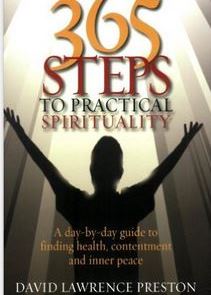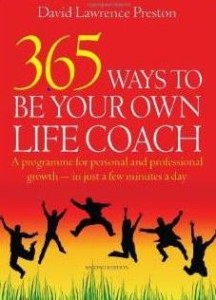You have a wonderful power within you.
Consider the moment of your birth. At the instant your umbilical cord was cut, you became a separate human being, full of possibilities, charged with spiritual energy. You had within you the seeds of everything you needed to build a happy and fulfilling life. All you needed was someone to encourage your natural birthright to burst forth.
Then what happened?
Did anyone explain how you could make of your life whatever you willed? Were you encouraged to feel like the wonderful miracle of creation that you truly were? Did your adult caretakers nurture your self-esteem, helping you use your innate talents to the full?
Whether they did or not, your Inner Power is always there, just as it always was. It nurtures and sustains you, but the way you conduct yourself ultimately determines how you use it and consequently the kind of life you create for yourself. Everything you do and say has consequences. Greed, envy, selfishness and cruelty are all too much a part of modern life: you don’t have to be a part of them.
It originates in the way you think, imagine and feel.
What you think, feel, and how you speak originates in your ‘inner world’. They condition your behaviour, and attract events and circumstances into your life according to your state of consciousness. Your life is a reflection of whatever you hold in your mind.
It is non-physical, i.e. spiritual.
It has nothing to do with physical attributes. If this were not true, elderly, impaired or diminutive individuals such as Nelson Mandela, Winston Churchill, Franklin D. Roosevelt, Mahatma Gandhi and Mother Theresa would have made little impact.
You will never realise your full potential as long as you think of yourself primarily as a physical body with a brain. You must go beyond all that to that part of you which ‘knows’ at a much deeper level.
You can access it through your Superconscious Mind
The Superconscious oversees the Conscious and Unconscious Minds and communicates with you through intuition and synchronicity. When you are conversant with it, it endows you with higher-level wisdom, creativity and inspiration, peace of mind, and an exhilarating sense of freedom
There is an ever-present Intelligence that responds when we direct our attention and our thoughts to it. It is the invisible ‘energy’ or ‘intelligence’ that governs the universe; the ‘life-force’ which suffuses everyone and everything, and connects us to each other.
Attune yourself to Higher Consciousness….
The Superconscious is powerful, but only because it has a direct line to something even more significant: Universal Consciousness.
Do I mean God? No. The idea that something or someone is ‘up there’, outside of ourselves, looking down on us, belongs to a bygone age.
Many religious people refer to this life-force as ‘God’, but J. Krishnamurti, a great spiritual teacher from the last century, a man familiar with both the Eastern and Western traditions, said, ‘There is only one God as manifested in you, but I am not going to use the word ‘God’. I prefer to call this ‘Life’.’
God/Life is within you. You can feel it pulsating in every part of your being. It is present in rivers and oceans, it makes the stars shine, the Earth rotate on its axis, flowers bloom, trees grow and fish swim. It heals the sick, and without it, everything dies.
Mahatma Gandhi wrote,
‘Whilst everything around me is ever-changing, ever-dying, there is underlying all that changes a living power that is changeless, that holds all together, that creates, dissolves and re-creates.’
A student once asked the teacher, ‘How can I find God?’ The teacher replied, ‘How does a fish find the ocean?’ You are living in an ocean of consciousness. It is all around you and within you, just as a wave is part of the ocean. Like sunlight, which radiates throughout the solar system, it is available to everyone.
Love, peace and happiness are not to be found in faraway places or unusual states of consciousness, but here, right now, if you are willing to receive them.
…. by having some quiet time to yourself each day….
Make a priority of having regular quiet time for you. When you commune with your Inner Power in silence, your spirituality assumes a progressively greater role in your life. Regular practice of prayer and meditation makes a profound difference.
Affirmative prayer is simply a conversation with your Inner Power. Many people think prayer is a waste of time, because they have tried it in the past, felt their prayers went unanswered, and gave up. If this is your experience, it is probably for one of two reasons.
- Either you have not listened hard enough for an answer because that still, small voice within was drowned out by mental clutter.
- Or your prayers were answered, but either you didn’t notice, or it happened in a way you didn’t expect.
…. then miracles might just happen.
When you make prayer and meditation part of your daily life, everything flows more smoothly. You realise that, from a spiritual point of view, the best thing that could happen to you is happening right now. Learn as much as you can from it and let your Spiritual Self be your guide. Don’t expect miracles to happen, but equally, don’t be surprised if they do.
Allow this power to guide and support you….
The idea of acting ‘as if’ the power of the universe is flowing through you is not an abstract idea, because this energy is as real as you are – indeed, it is you. Until you fully grasp this, you are like a light bulb without current.
You can light up yourself and the world around you, but only once you are plugged in and switched on. You can receive spiritual power whenever you have a use for it.
Universal Consciousness constantly emits creative energy like the sun gives warmth and light. As the Indian teacher, Sai Baba, said:
‘The rays of the sun fall equally on all who are directed in their way. If someone is behind an obstacle, or in a room, he will receive only part of the light. Cultivating the higher spiritual yearnings is like coming out from the confinement of a room into the sun’s rays.’
Your task is to facilitate the flow of this universal energy through you and get out into the sunlight! How? The basic toolkit is in the letters I-T-I-A.
- Intention: Aspire to your highest potential, aiming at nothing less than completeness and harmony. As long as your intentions are pure and focussed, it’s there for you.
- Think: Cast off your negative beliefs. Shake off the habits and thinking patterns that have constrained you, clear away the rubbish you have gathered inside you, and raise your thoughts to the underlying Intelligence that governs all our lives. When you look for happiness and fulfilment in a higher way of thinking, anger, fear and anxiety fade into nothing.
- Imagine: Imagine yourself permeated with this Inner Power, attracting whatever you need into your life as naturally as breathing. Imagine yourself as a giant solar battery absorbing energy from the Source, this energy flowing through you and put to good use in the service of your fellow beings. Imagine that tranquil centre within you radiating energy and drawing others towards you, seeking the same peace of mind and sense of purpose that you have.
- Action: Put your ideas into action. Allow the invisible hand of Universal Consciousness to guide you. Trusting to this degree may be scary at first, but you know the reason for this is merely your programming and conditioning. The more you use it, the more available it is. Persevere and you will change yourself, your life, and the lives of those around you.
Ironically it is not the achievement of your goals that brings happiness, but the sense of purpose and direction they bring. If you succeed – great! If not, at least you’ve enjoyed trying.
…. and you will be happy, peaceful and fulfilled and have the courage to follow your dreams.
No words can express how you will feel once you have awakened the infinite power within you. You realise that all along there was something wonderful within you, and you did not know it. But now you do know it. You are greater than you knew, and all is well.
©David Lawrence Preston,

Follow me on Facebook and Twitter @David_L_Preston

How To Books, 2007





